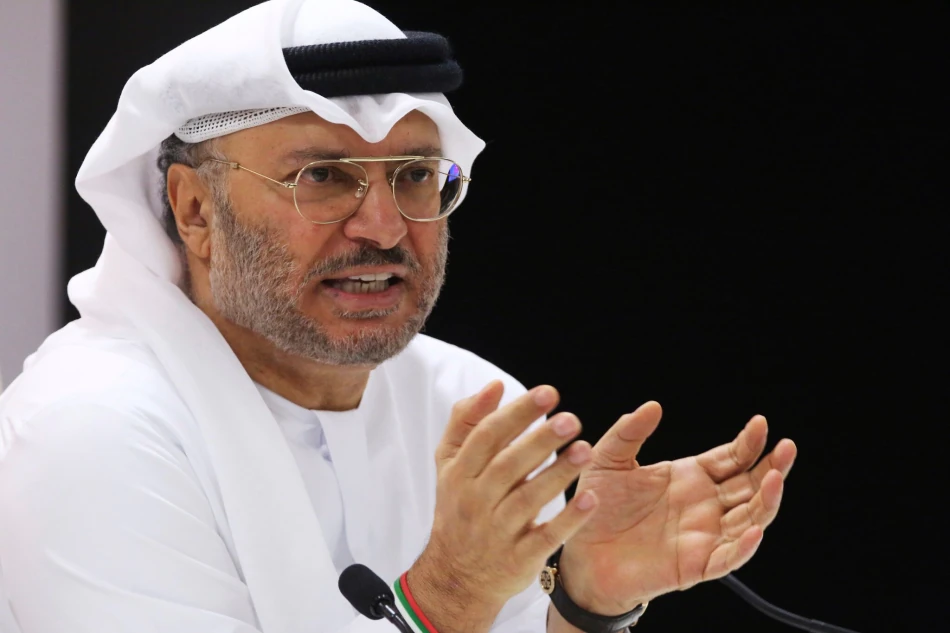
UAE Reaffirms Unwavering Support for Syria's Unity and Stability
UAE Warns Against New "Struggle for Syria" as Regional Powers Eye Post-Assad Future
The United Arab Emirates has positioned itself as a voice for Syrian territorial integrity amid growing regional competition to influence the country's trajectory following recent political upheavals. UAE diplomatic advisor Dr. Anwar Gargash condemned Israeli escalation while emphasizing that Syria should not become a battleground for external powers seeking to shape its future.
The Return of Historical Patterns
Gargash's reference to the "struggle for Syria" deliberately evokes the country's turbulent post-independence period after 1946, when competing regional and international forces vied for influence over the strategically located nation. This historical parallel suggests the UAE views current developments through the lens of Syria's recurring cycles of external interference.
The diplomatic advisor's warning comes at a critical juncture when Syria's political landscape faces unprecedented uncertainty, creating opportunities for regional powers to expand their influence. His statement that this struggle has returned "in a new phase aimed at adapting the features of Syria's future" indicates UAE concerns about ongoing geopolitical maneuvering.
Strategic Implications for Regional Stability
UAE's Calculated Positioning
The Emirates' stance reflects a broader strategic calculation about regional stability. By emphasizing Syria as a "central Arab country" whose strength and prosperity are "important pillars for regional stability," the UAE is positioning itself as a stabilizing force while potentially countering Iranian and Turkish influence in the Levant.
This approach aligns with the UAE's recent diplomatic pivot toward regional engagement, including its restoration of ties with Syria in 2018 and its broader strategy of economic diplomacy across the Middle East.
Market and Economic Considerations
For investors and regional markets, the UAE's position signals potential opportunities in Syrian reconstruction if stability can be achieved. The Emirates has historically leveraged its financial capabilities to gain influence, and Syria's eventual rebuilding could represent significant commercial prospects for UAE-based companies and sovereign wealth funds.
The emphasis on Syrian unity and stability also reflects concerns about refugee flows, trade disruptions, and energy security that have plagued the region throughout Syria's conflict.
Comparative Regional Approaches
The UAE's measured stance contrasts with more assertive positions taken by other regional powers. While Turkey has maintained a significant military presence in northern Syria and Iran continues to support allied militias, the Emirates appears to be betting on diplomatic engagement and economic incentives as more sustainable tools of influence.
This approach mirrors successful UAE strategies in other regional contexts, where economic partnerships and infrastructure investments have proven more durable than military interventions.
Implications for Syrian Sovereignty
Gargash's declaration that "Syria is not an arena for conflict, but a state that must accommodate all its children" represents both an idealistic vision and a practical recognition that sustainable Syrian stability requires inclusive governance rather than external domination.
However, this vision faces significant challenges given the complex web of international interests, sectarian divisions, and economic devastation that continue to shape Syrian realities. The UAE's ability to influence outcomes will likely depend on its capacity to coordinate with other regional actors while maintaining its stated commitment to Syrian sovereignty.
The Emirates' position ultimately reflects a broader regional trend toward pragmatic engagement with Syria's evolving political landscape, even as fundamental questions about the country's future governance structure remain unresolved.
Most Viewed News

 Sara Khaled
Sara Khaled






